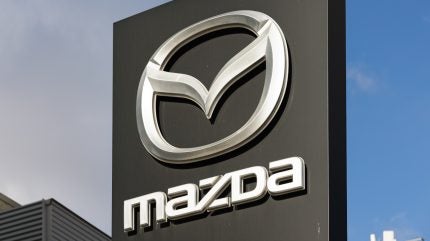
Mazda Motor is accelerating the use of artificial intelligence (AI) as it looks to offset its scale disadvantage compared with larger global rivals.
The Japanese automaker intends to leverage digital tools to streamline back-office functions and double productivity by 2030, reported Nikkei Asia.

Discover B2B Marketing That Performs
Combine business intelligence and editorial excellence to reach engaged professionals across 36 leading media platforms.
Building on this push, Mazda set up an AI transformation department in September at its headquarters in Hiroshima prefecture.
The unit currently has about 70 staff, with plans to broaden headcount to around 400.
The focus is on administrative areas such as accounting, procurement, human resources and public relations.
Mazda is deploying AI to consolidate and manage data currently dispersed across multiple systems, aiming to make information retrieval faster.
For conversational tools, Mazda is using Microsoft’s Copilot and OpenAI’s ChatGPT.
Work is also ongoing on its own in-house AI system.
Mazda managing executive officer Akihiro Kidani said: “The idea is to enable five people to do the work of 10, freeing up the remaining five to create new value.”
Administrative teams across the company are now identifying processes that can be simplified or automated.
One pilot project targets Mazda’s monthly global production report, which has taken about 50 hours to compile due to differing systems at overseas joint ventures.
A trial AI-based approach is designed to aggregate and calculate the numbers across global systems almost instantly.
Mazda is also testing AI for language and voice applications. Speeches by the company’s president are to be translated into other languages using AI that mimics his voice.
Mazda has long used digital tools in manufacturing and development.
Since 1996, it has centralised planning, design and engineering data, adopted virtual model-based development to reduce physical prototypes and testing, and more recently integrated AI into this process.
With its comparatively limited resources, Kidani said “it is necessary for us to be more advanced in digital innovation than our competitors”.
The AI push comes as Mazda’s results are being affected by US tariff measures.
For the first half of the financial year ending 31 March 2026 (covering 1 April to 30 September 2025), Mazda’s global retail sales totalled 609,000 vehicles, a 3% decline year on year, largely due to softer demand in Europe.
Sales in Japan and North America rose over the same period.
Consolidated wholesale volume fell 8% year on year to 543,000 units.
Net sales slipped 6% to Y2.23tn ($14.18bn), while Mazda posted an operating loss of Y53.9bn and a net loss attributable to owners of the parent of Y45.3bn.
The company said the later-than-expected timing of Japan–US auto tariff reductions had a negative impact of Y10.3bn.
Mazda is targeting higher sales in Europe and other regions and plans to cut both fixed and variable costs in the second half of the year.
The group views restoring profitability as urgent as it navigates industry shifts towards vehicle electrification and automation and expects the broader use of AI to play a role in lowering costs.






